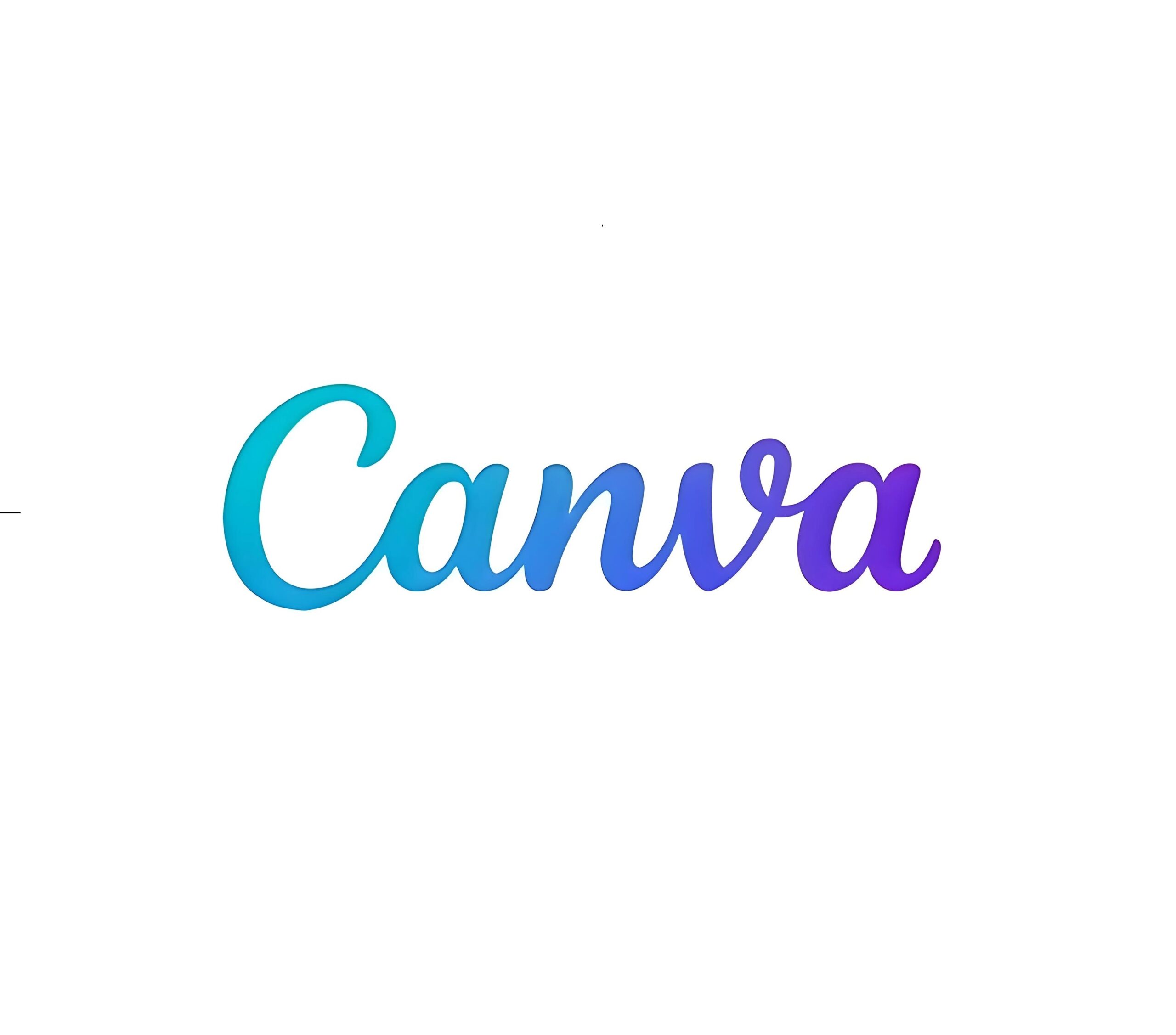Canva has gained widespread popularity as a versatile graphic design platform that empowers users to create stunning visual content without the need for extensive design skills or software expertise.
I have used Canva for a while now and I must say it has really improved my graphic design skills, yes I love designing and I use all tools I can find at my disposal including Photoshop, Paint, and Publisher (Yes Yes I know, Publisher…) as I was saying.
I have really put Canva to good use until they have CAUTIONED ME TO STOP USING IT FOR WHILE.
Just kidding, they actually gave me an award. Design Guru they called it. Me…!! a Design Guru? I was really humbled. All was on the free version.

Canva’s Features and Functionality
Canva offers a rich array of features and functionalities that cater to various design requirements:
Drag-and-Drop Interface: Canva’s intuitive drag-and-drop interface allows users to easily create designs by simply dragging elements onto the canvas, rearranging them, and customizing their properties.
Template Library: One of Canva’s standout features is its extensive library of templates for various design categories, including social media graphics, presentations, posters, flyers, invitations, and more. These templates serve as starting points for users, providing inspiration and guidance for their designs.
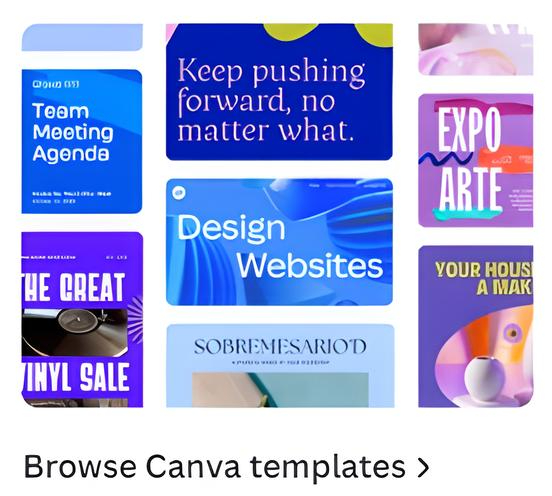
Design Elements: Canva offers a vast collection of design elements such as photos, illustrations, icons, shapes, and fonts that users can incorporate into their designs. These elements are searchable and categorized, making it easy to find the perfect asset for any project.
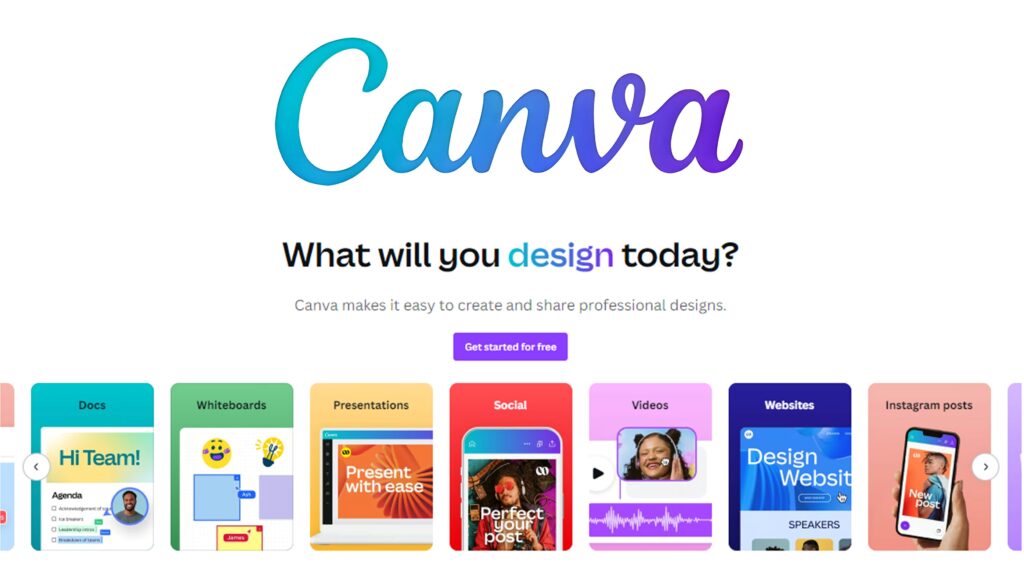
Customization Options: Users can customize every aspect of their designs, including colours, fonts, backgrounds, and layouts. Canva provides a range of editing tools and effects to enhance and personalize designs according to individual preferences.
Usability and User Experience: Canva’s user-friendly interface and intuitive design make it accessible to users of all skill levels. Whether you’re a seasoned designer or a novice, you’ll find Canva easy to navigate and use. The platform’s simplicity and versatility make it ideal for individuals, businesses, educators, and non-profit organizations alike.

Collaboration: Canva allows multiple users to collaborate on a design in real time, making it ideal for team projects or group assignments. Users can share designs with collaborators, leave comments, and track changes seamlessly.
Integration: Canva offers integration with various platforms and tools, including social media platforms like Facebook and Instagram, as well as productivity tools like Google Drive and Dropbox. This integration streamlines the workflow and allows for easy sharing and exporting of designs.
The drag-and-drop functionality, coupled with the extensive template library and customization options, empowers users to create professional-looking designs quickly and effortlessly. Moreover, Canva’s responsive design ensures that designs look great across various devices and screen sizes, further enhancing the user experience.
Canva Drawbacks
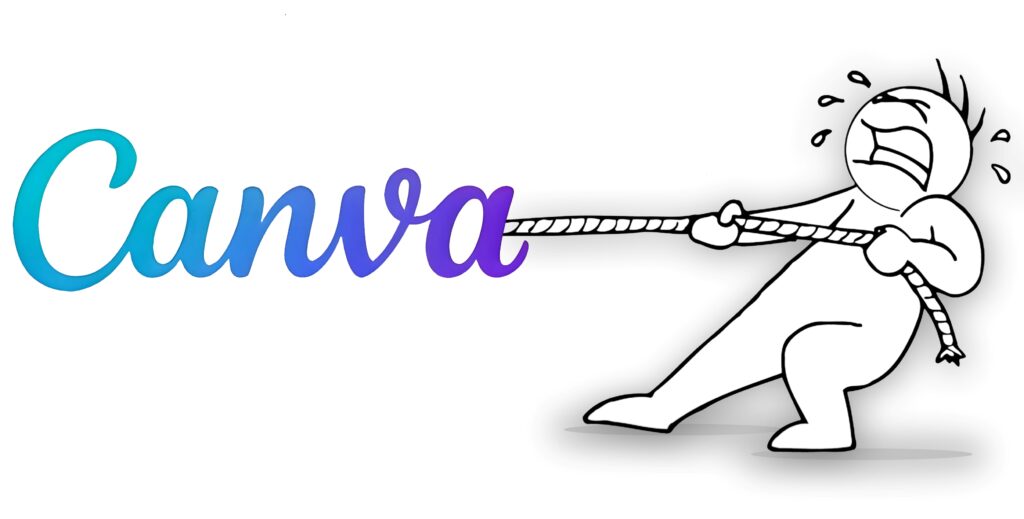
While Canva is a versatile and user-friendly graphic design platform, there are a few drawbacks to consider:
- Limited Advanced Features: Canva may lack some of the advanced features found in professional design software like Adobe Photoshop or Illustrator, making it less suitable for complex graphic design projects.
- Template Limitations: While Canva offers a vast library of templates, users may find that some templates lack customization options or are too generic for their specific needs.
- Branding Restrictions: Users on the free plan may encounter limitations when it comes to branding customization, such as limited access to custom fonts and color palettes.
- Offline Access: Canva primarily operates as a web-based platform, so users may encounter challenges when trying to access or edit designs offline.
- File Export Options: Canva’s file export options may be limited compared to other graphic design software, particularly when it comes to exporting files in specific formats or resolutions.
- Pricing for Pro Features: While the free plan offers basic features, users may need to subscribe to the Canva Pro plan to access premium features, which comes with a monthly or annual subscription fee.
- Learning Curve: While Canva is designed to be user-friendly, users with no prior design experience may still encounter a learning curve when navigating the platform and learning how to utilize its features effectively.
Pricing and Plans
Canva offers both free and paid subscription plans, catering to different user needs and budgets:
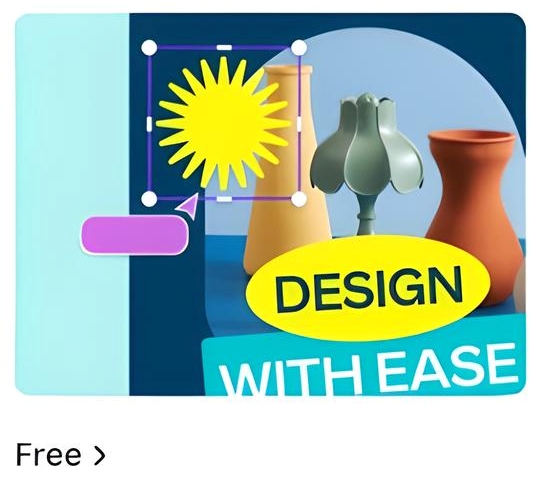
Free Plan: The free plan provides access to basic features and design elements, allowing users to create designs at no cost. However, certain premium elements and functionalities are restricted to paid plans.
Canva Pro: The Pro plan offers additional features such as unlimited storage, access to premium templates and design elements, advanced collaboration tools, and the ability to create custom templates. It is available on a monthly or annual subscription basis, with discounts for annual billing.
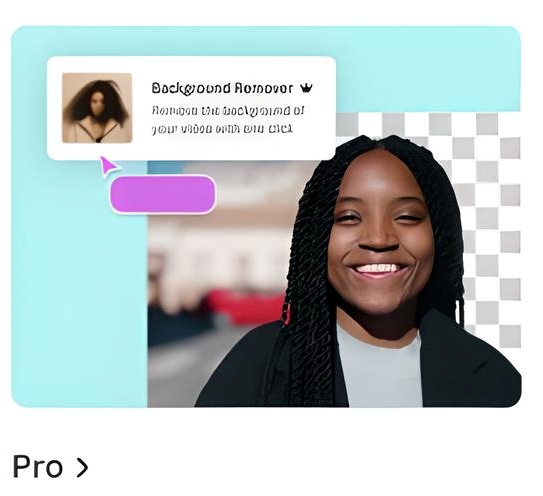
You Check Out a Quick Review I have done about Canva.
Conclusion
Overall, Canva is a powerful and user-friendly graphic design platform that empowers users to unleash their creativity and bring their ideas to life. With its extensive library of templates, design elements, and customization options, Canva caters to a wide range of design requirements and skill levels. Whether you’re creating social media graphics, presentations, posters, or marketing materials, Canva provides the tools and resources you need to create stunning designs with ease.
Checkout Canva > It’s Free
FAQs About Canva
Is Canva suitable for professional graphic design work?
Yes, Canva is suitable for both amateur and professional graphic design work. While it may not offer the advanced features found in professional design software like Adobe Photoshop or Illustrator, Canva provides robust tools and resources for creating high-quality designs for various purposes.
Can I use Canva offline?
Canva is primarily a web-based platform, so an internet connection is required to access its features and functionalities. However, Canva does offer mobile apps for iOS and Android devices, which allow users to create and edit designs offline to some extent.
Is Canva safe and secure to use?
Yes, Canva takes user privacy and security seriously and employs measures to safeguard user data. However, as with any online platform, it’s important for users to practice good security hygiene, such as using strong passwords and being cautious when sharing sensitive information.

